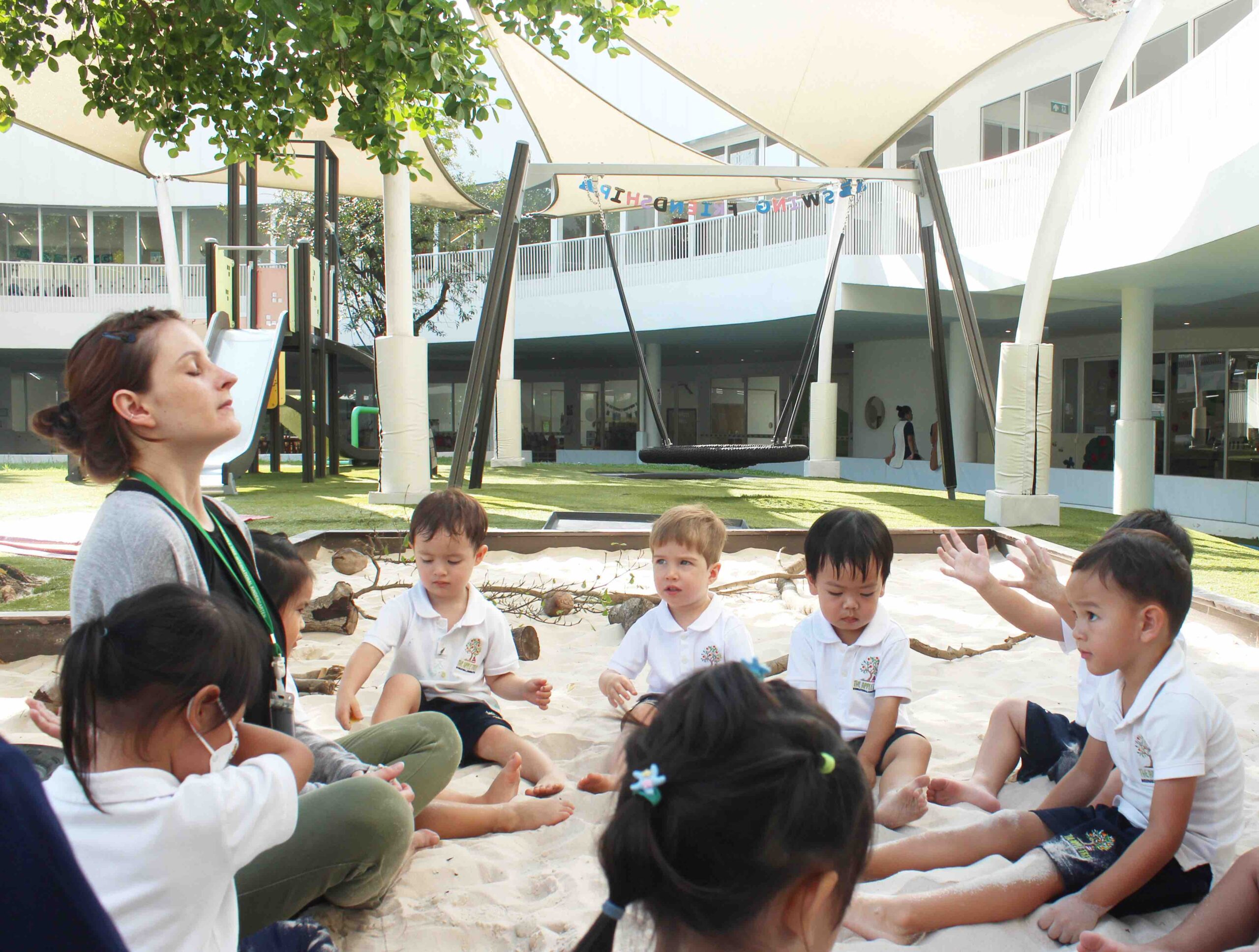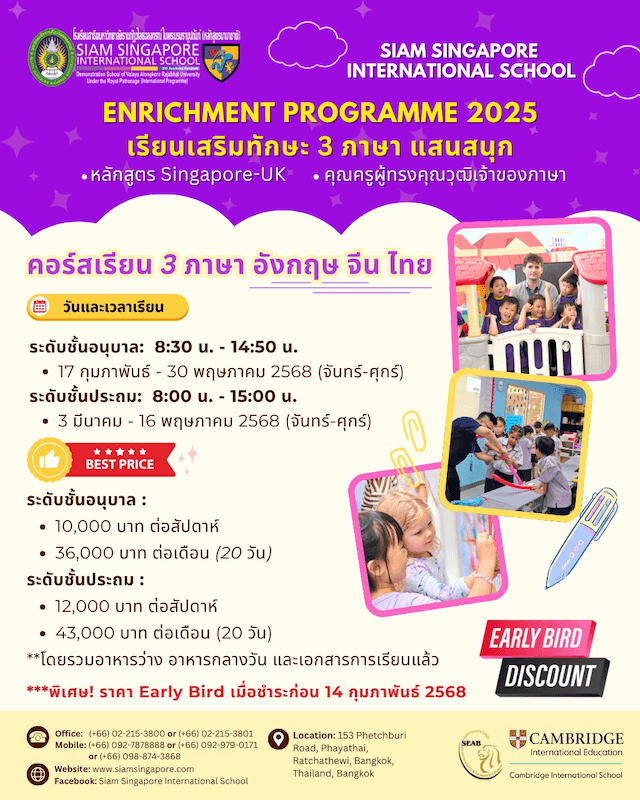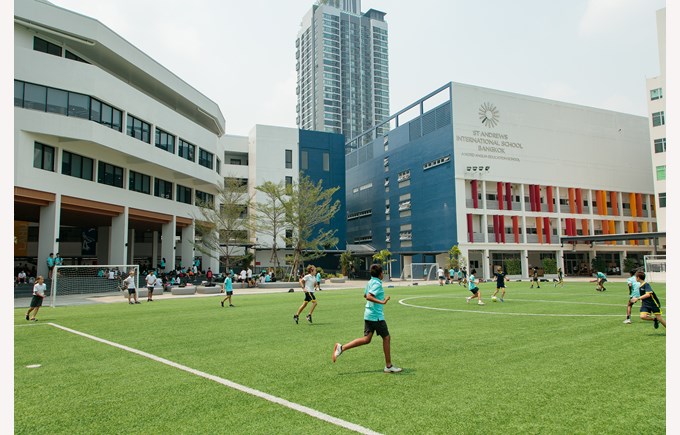Courtesy of The Apple Tree International Kindergarten.
Using mindful practices to support high levels of wellbeing and self-regulation in the early years can be a super power and according to Apple Tree Kindergarten …it’s never too soon to start.
‘Mindfulness’ and ‘Well – Being’ are highly discussed topics around the world today, in all professional fields and walks of life, possibly due to a combination of factors, most recently the pandemic which has highlighted deteriorations in mental health both in adults and in children from as young as 4 years old. Children who, not only absorbed parental anxieties but also the wider communities such as neighbours, schools, conversations and experiences they have been exposed to.
However, we must be aware that the pandemic is just one example that very clearly demonstrated its knock-on effects of fear and anxiety to the whole world, it is important to keep in mind that mental health issues have been around for much longer and that our children can be affected, be it a death in the family, to the stress of moving countries or the first day of school and so on. Most of these things are a part of life, as is change, therefore it is imperative to learn and role model healthy behaviours to support our own and our children’s mental health and wellbeing to be able to adapt.
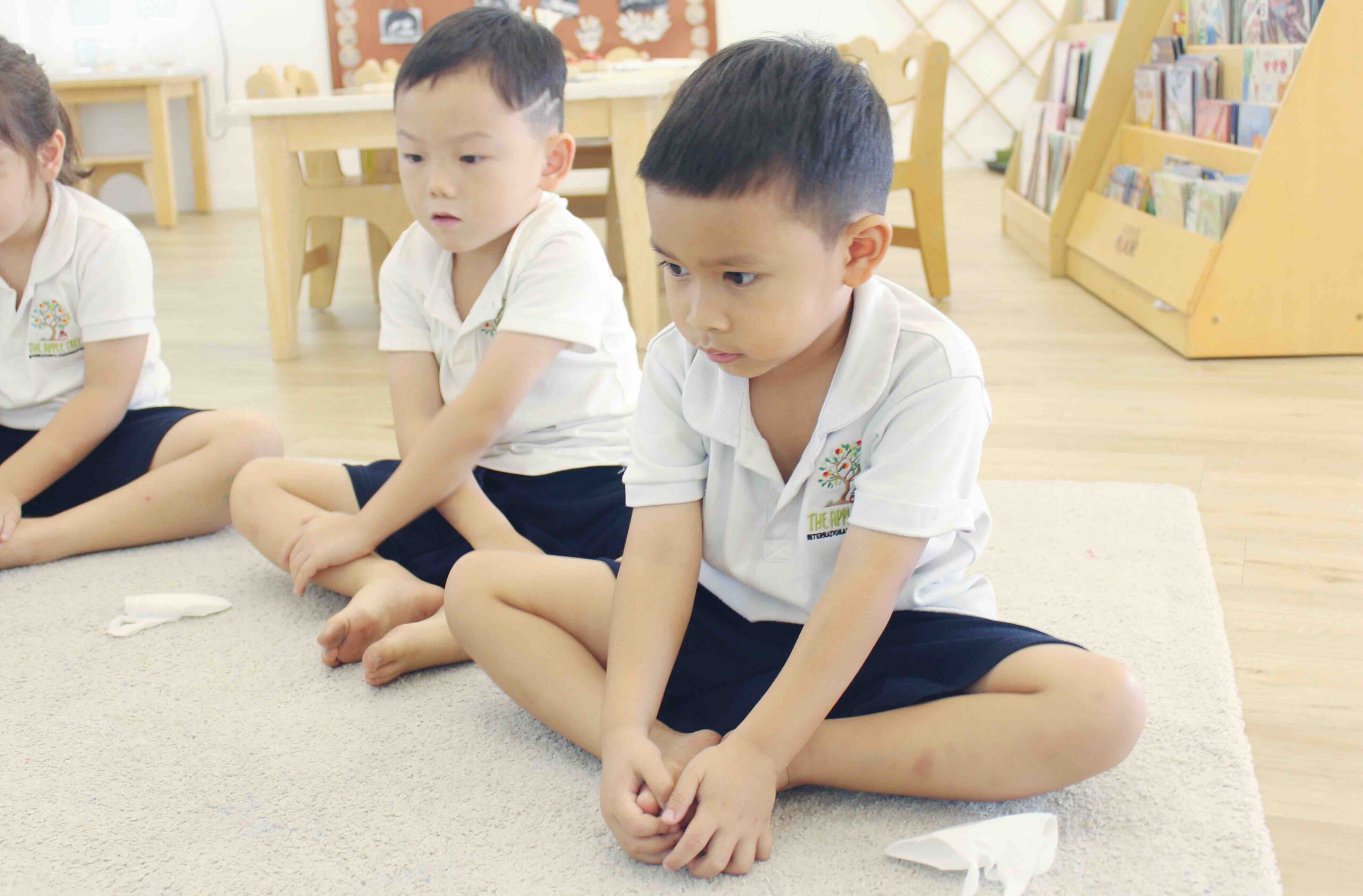
A more positive outcome is that more awareness has been created around the topic allowing healthy communication, strategies and tools to emerge in order to support our youngest for their successful futures. Children are very resilient, especially when they understand the ‘why.’ This is very worthy of keeping in mind, that research around resilience shows that when children have support networks; i.e., grandparents, neighbours, friends, siblings, schools and their teachers, they don’t need all of them just two or three, they automatically become more resilient. Furthermore, we can add in tools and strategies for coping with any kind of stress, trauma or anxiety such as self-regulation, healthy communication, recognising behaviours and developing ways to keep calm can be very powerful for our future generations to become emotionally intelligent, compassionate and happy individuals.
Let’s consider first what mindfulness really is, there are different ways to define it, but more or less they come down to the same thing. It is useful for us to truly understand what it is, to be able to fully embody the practice. Here are some definitions that hopefully resonate with you as they did with me.
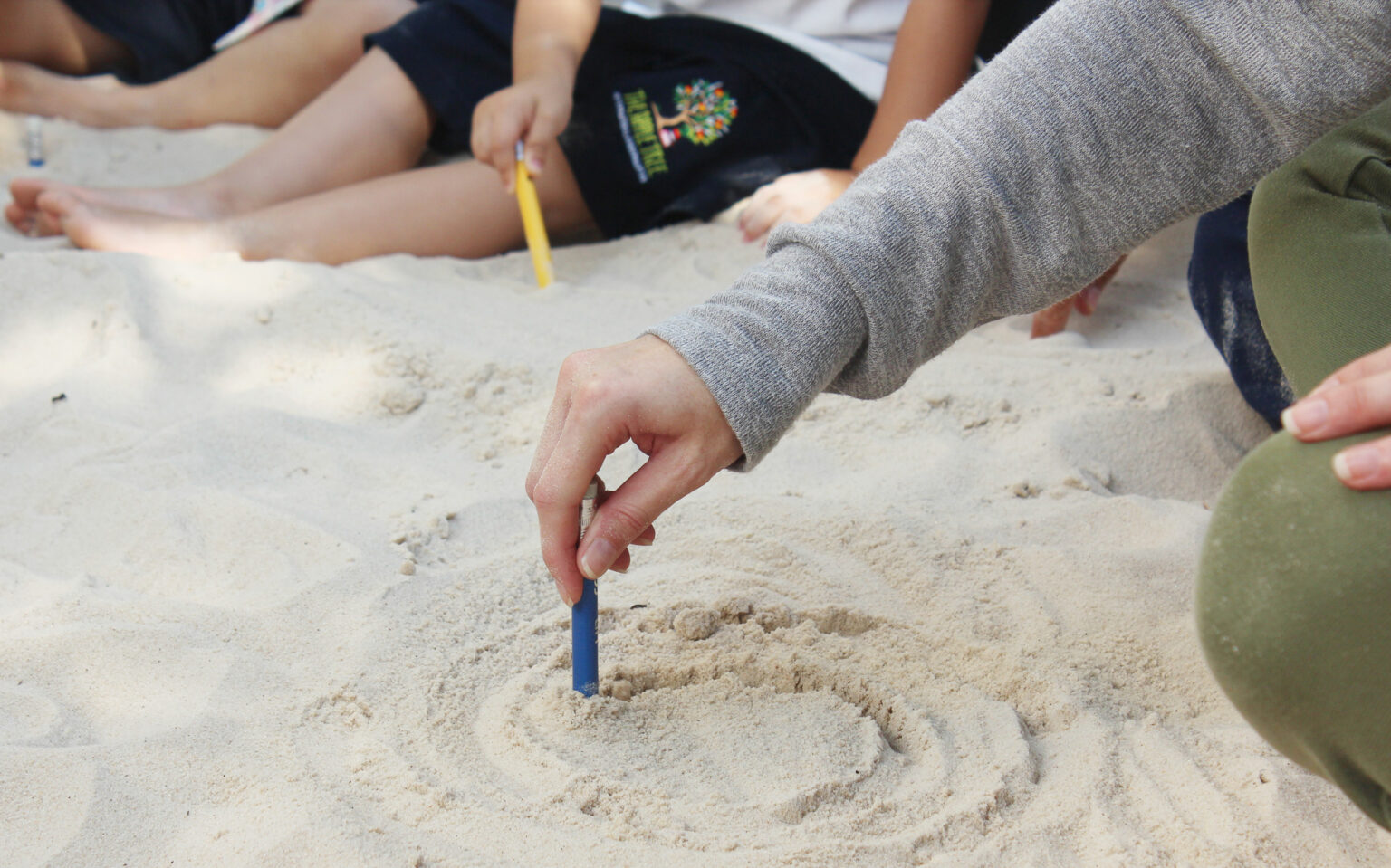
“Mindfulness is the basic human ability to be fully present, aware of where we are and what we’re doing, and not overly reactive or overwhelmed by what’s going on around us.”
“Paying attention here and now with
kindness and curiosity.”
(Association for Mindfulness in Education)
“Maintaining a moment-by-moment awareness of our thoughts, feelings, bodily sensations, and surrounding environment.”
(Greater Good Science Center at UC Berkeley)
“The awareness that arises through paying attention in a particular way, on purpose, in the present moment, nonjudgmentally.”
(Jon Kabat-Zinn)
Simple, right? Or maybe not, if this is not a practice you are familiar with, or depending on your own strategies to deal with stress, change, work – life balance and on top of that be ‘perfect parents’.
In today’s world, the 21st century, we are surrounded by societal expectations more than ever due to the wonderful invention of social media. Whilst most people are social media users in some shape or form, we are less connected than ever. Technology can be marvellous when used appropriately but if misused or used in a ‘mindless’ way it can cause more harm than good. Another opportunity to bring in mindfulness, around the way we use social media but also our perceptions of it, recognizing how we feel when we see things and reminding ourselves people rarely share ‘the bad days.’
Bringing mindfulness into school
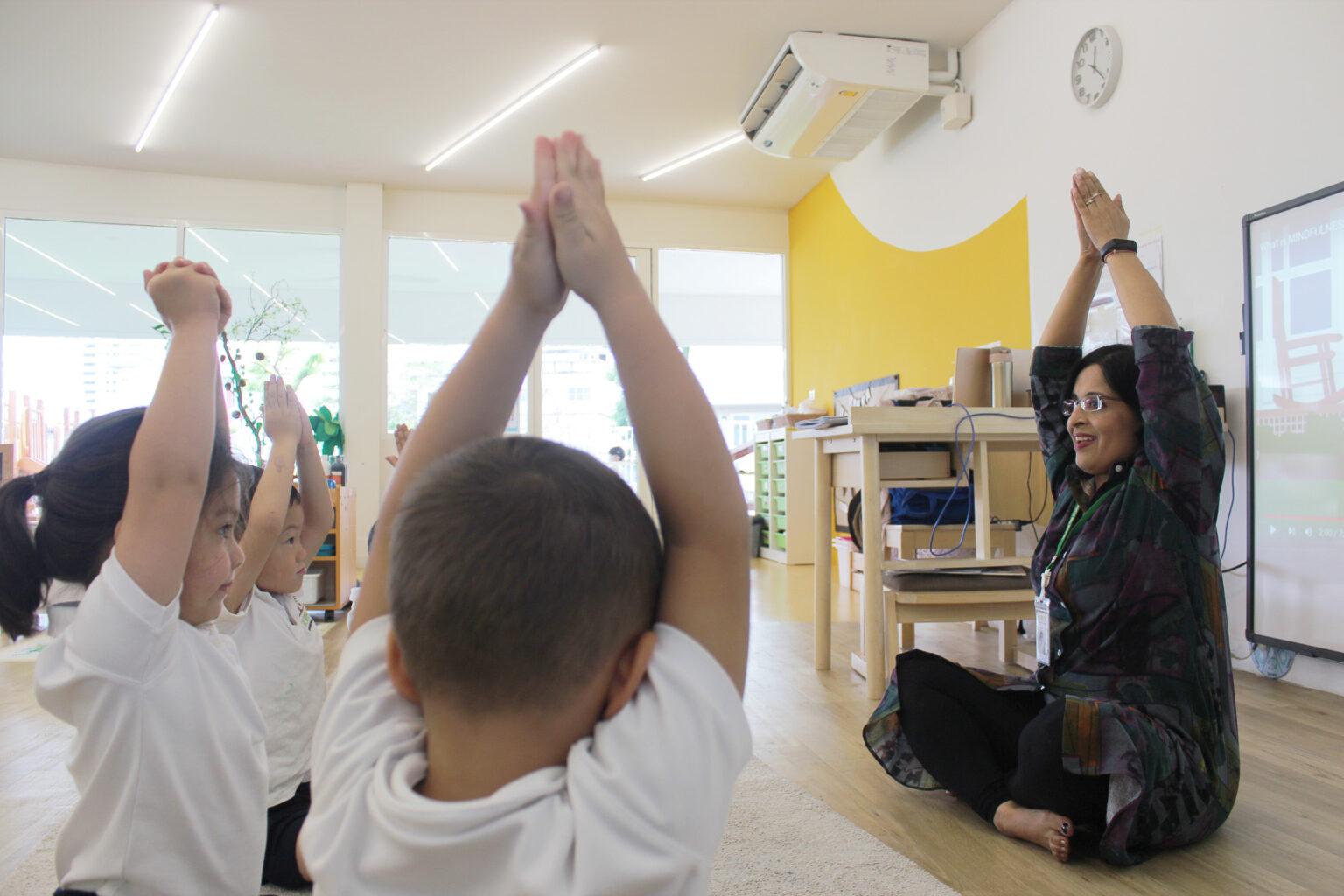
When adults engage in focusing practices such as mindfulness in early years settings, it helps to build and promote important mental, social, and emotional skills that children need in order to learn how to be confident, independent and empathetic to others. You will often see our teachers supporting our children’s, and their own, wellbeing and mindful practices to support their daily lives.
Everywhere I look, all research and discussions in education point to this; high levels of wellbeing and good mental health. It has become high priority for schools to look at the wellbeing of their learners, staff and parents. Early years education is a journey we take together, as a community building on those home – school relationships to role model positive behaviours and relationships that allow children to feel safe, secure and loved. Happy staff, happy children, happy parents.
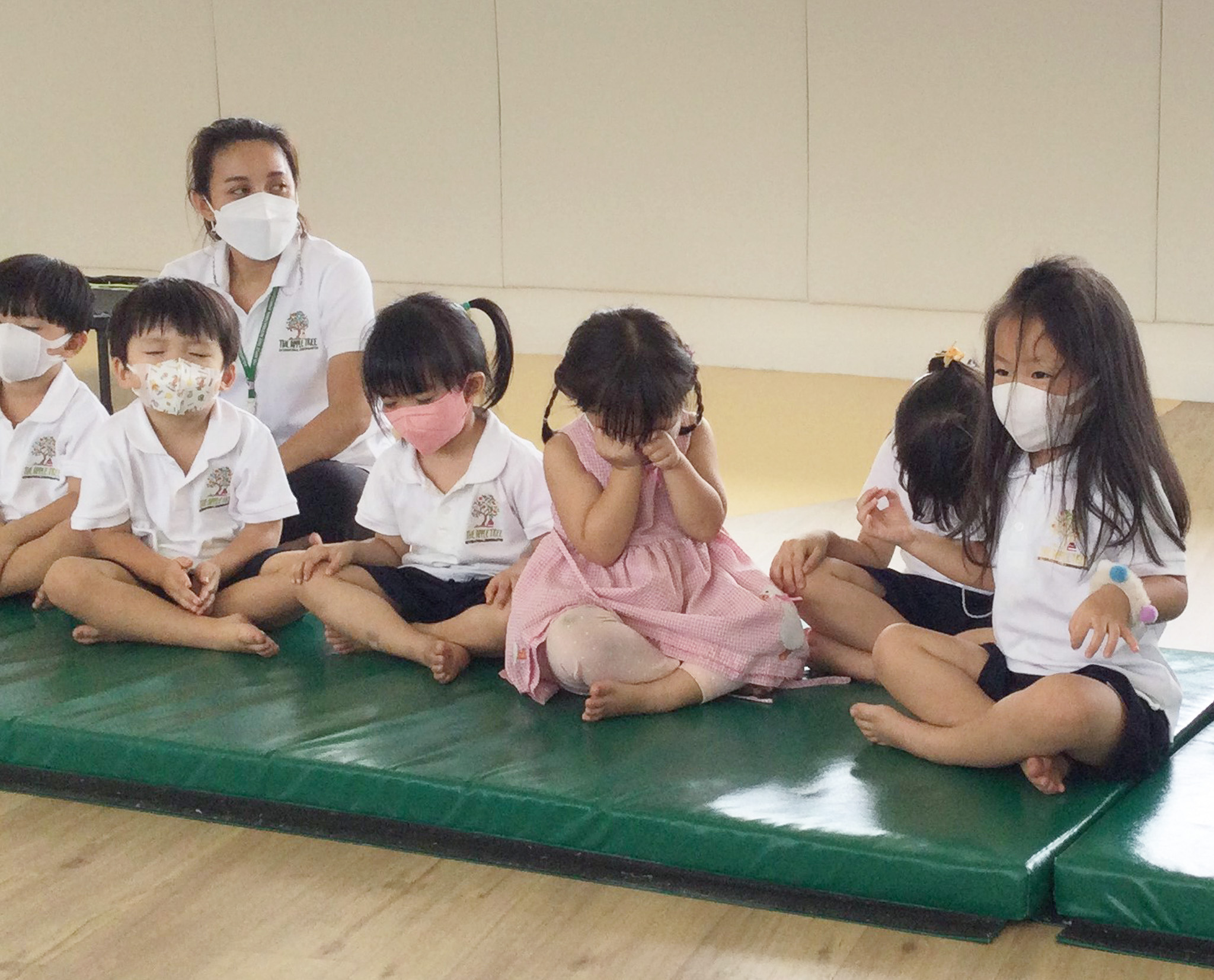
At The Apple Tree we use our own ways of staying present, being mindful and taking care of ourselves. Some of us enjoy yoga and meditation, being in nature, taking some time for ourselves and creating. We pride ourselves on reflecting this back to our parents and children and asking them to go on a journey with us. Early years in itself requires lots of reflections and mindful practices, taking the time to just be, not always chasing instant gratification and sitting with our feelings allowing us to be okay to not always be okay. We can slow down reflect and work through feelings together.
Parenting is no easy feat, as I am sure you are all nodding as you read this, and that is perfectly okay, coping with full time jobs, children, daily stress and everything that comes with the 21st century can be overwhelming at times and this is when emotions get the best of us, therefore being present and mindful can help us to ‘respond rather than react.’




